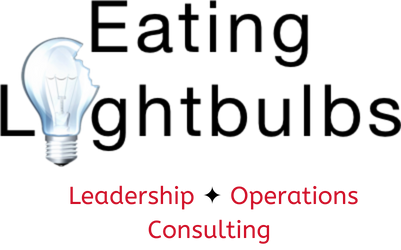Are Rules and Incentives Killing Health Care?
Do you believe your doctor puts your health ahead of profits? Does the red tape of health care affect the quality of your care? These questions and more are addressed in a book by Barry Schwartz and Kenneth Sharpe called Practical Wisdom. They say that professions like medicine should be a calling, not something you do to make money. Doctors need income, and considering the cost of medical school and malpractice insurance, it needs to be substantial. However, money should be a side benefit for practicing medicine, not the primary motivation.
Practical Wisdom is a concept from Aristotle, “In matters concerning action and questions of what is beneficial, the agent must consider on each different occasion what the situation demands, just as in medicine as in navigation.” Rules get in the way of this kind of thinking. Doctors need to be able to make decisions about how to treat individual patients based on the whole picture of the patient, not through the rules of the insurance companies or hospitals. Incentives can also impede care; doctors are offered incentives to do too much - fees for services or for doing too little via productivity bonuses.
Doctors are under tremendous pressure. Many are expected to spend 15 minutes or less with a patient and solve whatever issue they are having and not make any mistakes. In this system, it’s very hard to push back against the rules to do what you think is right. Many doctors do push back. When they do, it can threaten their jobs and careers. This is a problem because doctors have fewer and fewer opportunities to learn about practical wisdom as they rely more on rules and incentives to guide how they care for patients.
A region’s culture of care is determined mainly by its biggest local hospital. It turns out that the way a doctor is compensated affects things like the quality and cost of care you receive and plays a part in determining the culture of care. At the Mayo Clinic in Minnesota, doctors are all salaried and receive no individual fees, the Mayo Clinic is one of the best hospitals in the world, and the region it’s in has some of the lowest costs for health care in the country as well as Medicare costs in the bottom 15% of the country. Central to the culture of care at the Mayo Clinic is the “cultural philosophy of doing the best for the patient.” In contrast to the Mayo, we have Doctors Hospital in McAllen, TX. The doctors all have a stake in the hospital and receive a cut of the profits from every procedure, test and office visit. They are all paid on a fee basis. The region around McAllen has the highest Medicare costs in the country and the people who live there are no healthier. It’s essentially a culture of money, where it’s part of the culture to over-treat and order more tests. Research on intrinsic motivation tells us that the closer money is to a task, the more likely it will interfere with it. This one thing, how we compensate physicians, would go a long way towards fixing our healthcare system.
There is a story in the book about a patient complaining of dizziness. He had seen his doctor and many specialists; months later, no one could figure out what was wrong with him. Finally, he was sent to a special diagnostic clinic at Stanford where for the first time, a doctor asked him what was going on in his life and asked him to describe his dizziness. It turns out that the man had recently lost his wife and his dizziness was a psychological problem, not a physical one. After a few months of therapy, he was back to normal. All this cost and turmoil because his primary care physician didn’t know his patient or bother to gather basic information.
Practical wisdom can be applied to any profession, not just medicine. We see the erosion of autonomy and purpose across many walks of life where rules and incentives interfere with us doing what we know is right. The older I get, the more obvious it is that we live in a world that’s not black and white but in many subtle shades of gray. “Having the know-how to do right by others makes us happy; it gives us the know-how to do right by ourselves.”

